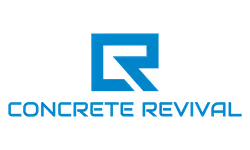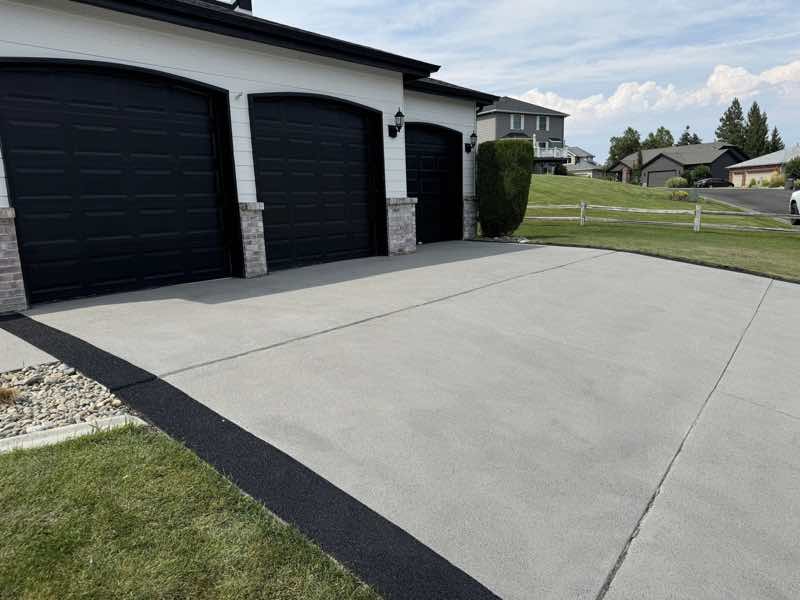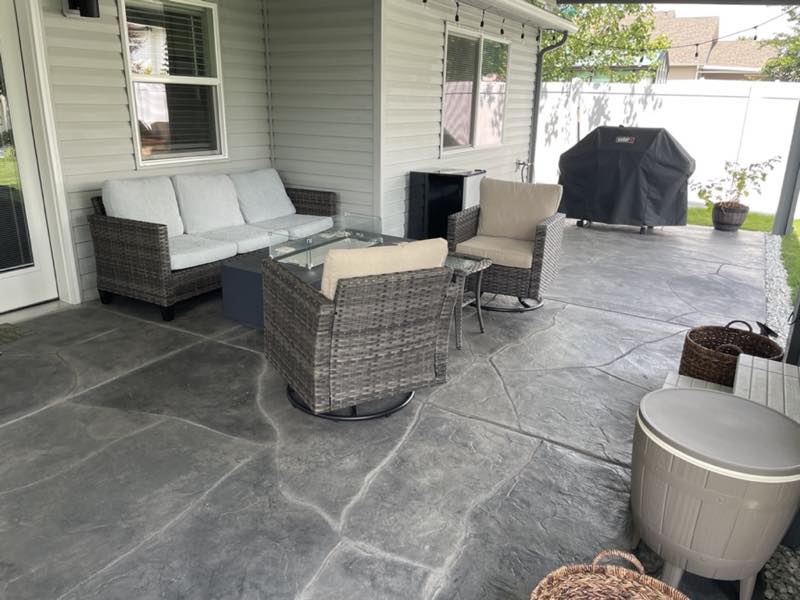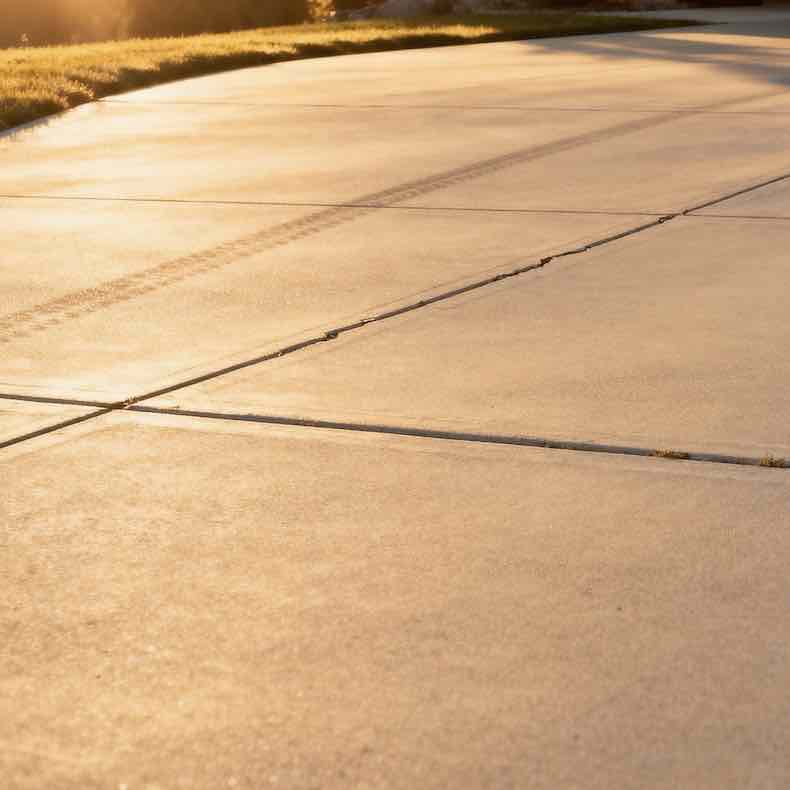Asphalt driveways can last 20–30 years when you take care of them. But without protection, they often break down in half that time, according to the National Asphalt Pavement Association. For Spokane homeowners, our weather is hard on driveways. Freeze-thaw cycles, hot sun, and big temperature swings (sometimes 40°F in a single day) all damage asphalt.
You've seen small cracks spreading across your driveway. Maybe a neighbor just had theirs sealed. But at $200–$600 for professional service, is sealcoating really worth it? Or is it just an upsell?
This guide answers whether sealcoating a driveway is worth it. We'll look at real costs, how long it lasts, and what works best for Spokane homes. You'll learn how sealcoating protects asphalt, what it costs here, whether the benefits are worth it, and when to skip it. Plus, we'll explain how to time the job for Spokane's short construction season.
Is Sealcoating a Driveway Worth It?
Yes, especially in Spokane's weather. Professional sealcoating costs $0.15–$0.25 per square foot. It makes your driveway last 3–5 years longer by stopping water from getting in and causing winter cracks.
But it only works on driveways that are still in decent shape. You need to fix any cracks first. If your driveway has big problems with the base layer, you need resurfacing instead.
For Spokane homeowners, it pays off if you plan to stay 5+ years and your driveway only has minor cracks and no major settling. If you don't sealcoat, your driveway will usually fail in 10–12 years instead of lasting 20+ years.
Not sure if your driveway needs repair first? Check out our crack filling and sealcoating services or call (509) 608-3211 for a free look at your driveway.
What Sealcoating Does (And Doesn't Do) for Your Driveway
Sealcoating puts a protective layer over your asphalt. It blocks water, sun rays, and oil—the three main things that destroy driveways over time. Think of it like sunscreen for your driveway. It doesn't fix damage you already have, but it stops new damage.
What sealcoating protects against:
- Water damage – Stops moisture from getting into the asphalt where it freezes and causes cracks and potholes
- Sun damage – Blocks UV rays that make asphalt turn brittle and gray
- Oil and gas stains – Makes cleaning easier and stops petroleum from breaking down the asphalt
- Wear and tear – Brings back the black color and makes the surface smoother and stronger
What sealcoating does NOT fix:
- Cracks wider than ¼ inch (you need to fill these first)
- Potholes or chunks of missing asphalt
- Water that pools up or drainage problems
- Problems with the base layer under your driveway
- Big settling or uneven spots
You need to sealcoat again every 2–3 years to keep it working. It's regular maintenance, not a one-time fix. For more information on asphalt care, the National Asphalt Pavement Association has lots of helpful resources.
Why Spokane Driveways Need Extra Protection
Eastern Washington's weather is really hard on asphalt. Our summers get hot (often 90–95°F), making asphalt soft. Then winter drops below freezing for weeks, making it hard and brittle.
These big temperature swings—sometimes 40°F+ in one day during spring and fall—make asphalt age faster. Water gets into small cracks during the day. Then it freezes at night and expands. This freeze-thaw cycle happens dozens of times each year in Spokane.
After working through 15+ Spokane winters, we learned that one coat of sealer fails by year two. Our two-coat system works better. We use a first layer that soaks deep into old asphalt. Then we add a topcoat with UV blockers made for tough weather. It might be too much in Seattle—but it's needed here.
The Good and Bad Things About Sealing Your Driveway
Let's look at both sides so you can make a smart choice. Here's what you gain and what you give up.
Good Things About Sealcoating
Stops water damage and freeze-thaw problems – This is the #1 reason to seal in Spokane. Water is asphalt's worst enemy. Our winters turn every small crack into a path for water to get in.
Slows down sun damage – UV rays break down the oils in asphalt, turning it gray and brittle. Sealcoating blocks up to 95% of UV damage.
Makes maintenance easier – Snow removal equipment slides over sealed surfaces more smoothly. Oil stains wipe away instead of soaking in.
Looks better – Fresh black asphalt looks clean and well-kept. While it doesn't add much to home value, it shows buyers you've taken care of your property.
Makes your driveway last 3–5 years longer – That saves you $3,000–$5,000 in replacement costs later.
Bad Things About Sealcoating
You have to do it again – You need to reseal every 2–3 years. Plan to spend $300–$500 each time for most Spokane driveways.
Doesn't fix big problems – If your driveway has base problems, widespread cracking, or major settling, sealcoating won't help. You need professional repair or resurfacing.
Needs the right timing and drying time – You need 24–48 hours of dry weather above 50°F. In Spokane, that means scheduling during our short construction season.
Can be slippery when wet at first – For the first few days after we apply it, sealed surfaces can be a bit slick in rain. This goes away as it fully dries.
New asphalt must wait – If you just got new asphalt, wait 6–12 months before the first sealcoating. Fresh asphalt has oils that need to dry out naturally first.
What We Turn Down
We've turned down 30+ jobs this year where people wanted sealcoating on driveways that really needed full resurfacing. When we see lots of connected cracking, major base failure, or big potholes, we tell people the truth: "Sealcoating won't help here. You need a bigger repair."
It's not what people want to hear. But it's honest. We'd rather lose a $400 sealcoating job than have an angry customer six months later when their driveway still looks bad.
Is Your Driveway Good for Sealcoating?
Not every driveway should be sealed. Here's a simple way to figure out if sealcoating makes sense for you.
✅ SEAL IT if your driveway has:
- Asphalt that's 2–15 years old (not brand new, not totally worn out)
- Only thin cracks or minor wear on the surface
- No standing water or drainage problems
- A surface that's mostly okay, with the black color fading to gray
- You plan to stay in your home 3+ years
⚠️ REPAIR FIRST if you have:
- Cracks wider than ¼ inch
- Small potholes or chunks of missing asphalt
- Noticeable sinking in certain spots
- Oil stains that need treatment
- Edge damage from snow plows or settling
These problems need professional crack filling and repair before sealcoating will work. Good news: Most contractors can do repair and sealing in the same visit.
❌ RESURFACE INSTEAD if you see:
- Widespread connected cracking (looks like alligator skin)
- Base failure causing major sinking or heaving
- More than 30% of the surface showing big damage
- Patching over and over that hasn't fixed ongoing problems
- Standing water that shows serious drainage or base problems
At this point, sealcoating wastes money. You need to talk about resurfacing or replacement.
Not sure which one fits your driveway? Call (509) 608-3211 for a free driveway check. No pressure, no sales pitch. We'll give you straight answers even if that means sending you somewhere else. Sometimes the best service we give is telling someone they don't need our services yet.
How Much Does It Cost to Seal a Driveway in Spokane (2025)
Let's talk money. Professional sealcoating in Spokane typically costs $200–$600 for home driveways. It depends on size and condition.
Cost per square foot: $0.15–$0.25 for a proper two-coat job
What changes the final price:
- Driveway size – Most home driveways in Spokane are 400–1,000 square feet. Bigger driveways cost more but have a lower price per square foot.
- Current condition – If we need to fill cracks, treat oil stains, or do extra prep work, that adds cost. This is why we photograph and measure every crack bigger than 1/8 inch before giving you a quote—no surprises later.
- Access and slope – Steep driveways or those hard to reach need more careful work and sometimes special equipment.
- Decorative edges or borders – If you have stamped concrete borders, landscaping close to the driveway, or decorative edging, protecting these during work takes extra time.
DIY cost comparison:
You can buy sealcoating materials at home stores for $50–$150 depending on driveway size. Seems like a good deal, right? Here's what that price doesn't include:
- Your time (6–8 hours for most driveways including prep and application)
- Equipment you need to buy or rent: squeegee or brush ($40–$60), edging tool ($25–$40), pressure washer rental ($75/day)
- Crack filler if needed ($30–$50)
- The cost of doing it wrong and hiring a pro to fix it
The Real Cost of DIY Problems
We redo 15–20 DIY sealcoating jobs every season in Spokane. Common problems we see:
- Wrong product type – Store sealer isn't made for Spokane's freeze-thaw cycles
- Poor surface prep – Skipping pressure washing or putting it on damp asphalt
- Bad weather timing – Doing it when rain is coming or temperatures are too low
- Missed crack filling – Sealing over cracks without filling them first
Last spring, a homeowner in Liberty Lake spent $180 on DIY sealer from a big-box store. Then he called us when it peeled off in sheets after one winter. The problem? The product wasn't made for freeze-thaw weather. And he put it on in late October when temperatures were already dropping into the 40s at night.
We had to strip the failed coating and redo the job right. His total cost: $950. Our original professional quote: $425.
Why we map out your cracks: Before we quote any job, we photograph and write down every crack, stain, and problem spot. You get a detailed list of what we'll fix, what products we'll use, and why. No surprises, no hidden fees, no upselling once we're on site.
Ready for an accurate quote? Get a free sealcoating estimate or call (509) 608-3211.
How Long Does Sealcoating Last on a Driveway?
Properly done sealcoating lasts 2–3 years in Spokane before you need to do it again. That's shorter than the 3–4 years you might hear for milder weather areas. There's a good reason for the difference.
In places like Portland or Seattle, sealcoating lasts 3+ years. But Spokane's big daily temperature swings during spring and fall (40°F+) make it wear faster. The expanding and shrinking that happens every day during these times puts stress on the sealant that coastal areas don't get.
Things that affect how long sealcoating lasts:
Weather exposure – Spokane's strong summer sun (we get way more sunny days than Western Washington) fades the coating faster and breaks down the protection. Cold winters with repeated freeze-thaw cycles create more stress.
Traffic and use – Heavy vehicles, sharp turns, and parking in the same spots wear through sealer faster. If you have delivery trucks or an RV that uses the driveway often, plan to reseal closer to the 2-year mark.
How it's applied – Single-coat jobs wear faster than proper two-coat systems. The first coat soaks into the asphalt like a primer. The second coat protects the surface.
Maintenance between times – Simple habits make it last longer: sweep regularly to remove debris, clean oil spills right away, avoid driving on really hot summer days when asphalt is soft, and try parking in different spots sometimes to spread out the wear.
Total Life Impact
Here's what really matters: A well-kept, regularly sealed asphalt driveway in Spokane can last 20–25 years. A driveway with no treatment in the same place typically fails in 10–12 years.
That means regular sealcoating (costing $300–$500 every 2–3 years) stops you from needing a $5,000–$8,000 replacement. Over 20 years, you'll spend about $2,000–$3,000 on sealcoating to save $5,000+ on early replacement.
The math is simple: Maintenance costs less than replacement.
Best Time to Seal Your Driveway in Spokane
Timing is everything with sealcoating. Do it in the wrong weather, and you waste money. Get it right, and you get the best protection and longest life.
Best temperature: 50–85°F with 24–48 hours of dry weather coming
Why temperature matters: Below 50°F, sealant doesn't dry or stick to the asphalt right. Above 85°F, it can dry too fast and not soak in well.
Best months in Spokane: Late May through September
Here's what our 15+ years working in Eastern Washington taught us about when to schedule:
April–Early May: Too unpredictable. We get nice 65-degree days followed by surprise rain or even late snow. Your driveway might look dry on top, but spring moisture in the asphalt will stop sealer from sticking right.
Late May–June: Prime time. Temperatures stay warm enough. Asphalt has dried from winter moisture. And you're beating the summer rush.
July–August: Peak season. Weather is reliable and hot—sometimes too hot. We schedule most jobs for early morning or late afternoon when temps are just right. Book 3–4 weeks ahead during these months.
September: Last call. Early September can be great. But by late month you're gambling on weather. One surprise cold snap or rain can ruin a fresh sealcoating job.
October–March: Planning season only. Save our number for spring, but don't expect outdoor concrete or asphalt work.
The Spokane Scheduling Problem
Spokane's short construction season creates a jam. Unlike Western Washington where contractors can work all year, we have about 4.5 months to handle the whole season's work.
What this means for you: We usually fill our June–July schedule by mid-May. Homeowners who wait until they see neighbors getting work done often get pushed to late August—or miss the season completely and have to wait another year while their driveway gets worse.
Things to do before sealing:
- Pressure wash the driveway at least 48 hours before sealing
- Let the surface completely dry (no visible water or dampness)
- Fill all cracks wider than ¼ inch (we can do this during the same visit)
- Trim back plants that hang over the driveway edge
- Clear any vehicles, toys, or stuff from the area
- Check weather—cancel if rain is predicted within 24 hours
After sealcoating, plan for:
- 24–48 hours before you can walk on it
- 48–72 hours before driving on it (we'll be specific based on weather)
- 7 days for full drying (avoid sharp turns or heavy vehicles during this time)
Should You Do It Yourself or Hire a Pro?
This is the question we get most often. The answer depends on your situation. Let's break down what each option really involves.
DIY Sealcoating: What You're Really Signing Up For
Time needed: 6–8 hours for most home driveways—and that's if everything goes smoothly. This includes:
- Pressure washing and waiting 48+ hours for it to dry
- Taping off edges, landscaping, and garage floor
- Mixing sealer (most products need stirring and can't sit mixed for long)
- Putting it on with squeegee or brush (harder than it looks to get it even)
- Second coat (if you're doing it right)
- Cleanup and washing equipment
- Watching the weather constantly for 48 hours
Physical work: Sealcoating is really hard work. You're pushing a heavy squeegee across 400–1,000 square feet of pavement. Working in summer heat. Bent over for hours. Most people are sore for 2–3 days after.
Common DIY problems:
- Uneven coating – Thick spots dry slowly and stay soft. Thin spots don't protect well. Getting it consistent without professional equipment is hard.
- Edge work – Getting clean, straight lines along garage doors, sidewalks, and landscaping takes practice and the right tools.
- Weather timing – Pros watch forecasts closely and can reschedule easily. As a DIYer, you might take the day off work, start the job, and have weather turn bad.
- Product choice – Box stores carry consumer-grade sealer that isn't made for tough conditions or extreme weather.
Professional Sealcoating: What You're Really Paying For
Time needed: Most driveways are done in 2–4 hours from arrival to cleanup. You're paying for speed and know-how.
What professional service includes:
- Commercial-grade sealer – Products made for 4-season weather that you can't buy at stores
- Proper surface prep – Industrial pressure washing that removes years of embedded dirt and broken-down surface material
- Crack filling – Fixing structural problems before sealing (this step alone stops 80% of early seal failures)
- Two-coat application – Primer coat for soaking in, topcoat for protection
- Professional equipment – Spray application or commercial squeegees that get even coverage
- Warranty protection – Most good contractors warranty their work for 1–2 years
Hidden value in pro service: We're not just putting on sealer. We're checking for hidden problems. We're recommending what to do first. And we're using our experience to make smart choices about prep work, products, and timing that DIYers won't even know to think about.
When DIY Makes Sense
Be honest with yourself. DIY sealcoating is a reasonable choice if:
- Your driveway is under 500 square feet and in great shape
- You have experience with similar projects and own or can borrow the needed equipment
- You're comfortable with hard physical work and have a full day for it
- The weather forecast is rock-solid stable
- You're doing it mainly to save money and you're okay with lower quality
When to Hire a Professional
Hire a pro if:
- Your driveway is 500+ square feet
- You have cracks that need fixing (even small ones)
- This is your first time sealcoating
- You value your weekends or have physical limits
- You want the job done right with warranty protection
- You care about how it looks and want professional-looking results
Look, we're obviously biased—we do this for a living. But we're also Spokane natives who've lived in the neighborhoods we serve for decades. Ask around. Someone on your street knows our work. They'll tell you whether it's worth hiring us or going the DIY route.
See our 5-star reviews and service areas to hear what your neighbors say about our work.
Common Questions About Sealcoating from Spokane Homeowners
Can you sealcoat over a cracked driveway?
Not without fixing the cracks first. Sealcoating over cracks wider than ¼ inch is like painting over rust. It looks better for a bit, but the hidden problem gets worse. Water will still get through the cracks, freeze, and cause more damage. We always fill cracks before sealing. Learn more about our crack filling and repair services.
How long before I can drive on a sealed driveway?
Usually 48–72 hours depending on temperature and humidity. We'll tell you exactly when based on the forecast when we seal your driveway. In hot, dry summer weather, you might drive on it in 48 hours. In cooler or humid weather, wait the full 72 hours. Walking on it is usually safe after 24 hours, but we suggest staying off it completely if you can.
Will sealcoating fill small cracks?
Only hair-thin cracks (less than 1/8 inch). Anything wider needs special crack filler—a rubbery material that flexes with temperature changes and stops water from getting in. Trying to fill cracks with just sealer is one of the most common mistakes we see in failed DIY jobs.
How many coats of sealer should be put on?
Two coats minimum for Spokane's weather. The first coat works like a primer that soaks into the asphalt and bonds to the rocks. The second coat gives the actual protection against water, UV, and chemicals. Single-coat jobs save money at first but fail faster—usually within 18 months in our weather.
Does sealcoating increase home value?
A little bit. Fresh sealcoating makes your home look better, which matters during showings. But home appraisers typically don't add much value for cosmetic asphalt care. The real money benefit is avoiding $3,000–$5,000 in early replacement costs. Think of it as protecting your investment rather than increasing its value.
What happens if it rains after sealcoating?
If it rains within 24 hours after we apply it, you'll likely see streaking, poor sticking, and possible wash-off. This is why we watch forecasts carefully and won't start a job if there's any rain predicted within 48 hours. If weather forecasts change unexpectedly and rain hits a fresh seal job, we'll come back and redo affected areas at no charge.
Protect Your Spokane Driveway Before Next Winter
Sealcoating is worth it for most asphalt driveways in Spokane—especially those in fair-to-good shape with homeowners planning to stay 5+ years. Spending $300–$500 every 2–3 years stops thousands in early replacement costs. It protects against the unique problems of Eastern Washington's four-season weather.
Regular care matters more here than in milder places. The freeze-thaw cycles, temperature swings, and strong UV rays that define Spokane weather make asphalt age faster. Sealcoating won't fix big structural problems, but it will stop new damage—and that's the key to making your driveway last as long as possible.
Ready to protect your investment?
Free Driveway Check • No-Pressure Quotes • 10-Year Winter Damage Guarantee
Call (509) 608-3211
Still not sure if sealcoating makes sense for you? We get it—every driveway is different. Call us at (509) 608-3211 for straight answers.
We've turned down plenty of jobs where sealcoating wasn't the right move. We'll tell you honestly if yours is one of them. No pressure, no sales pitch—just neighbors helping neighbors make smart property choices.




